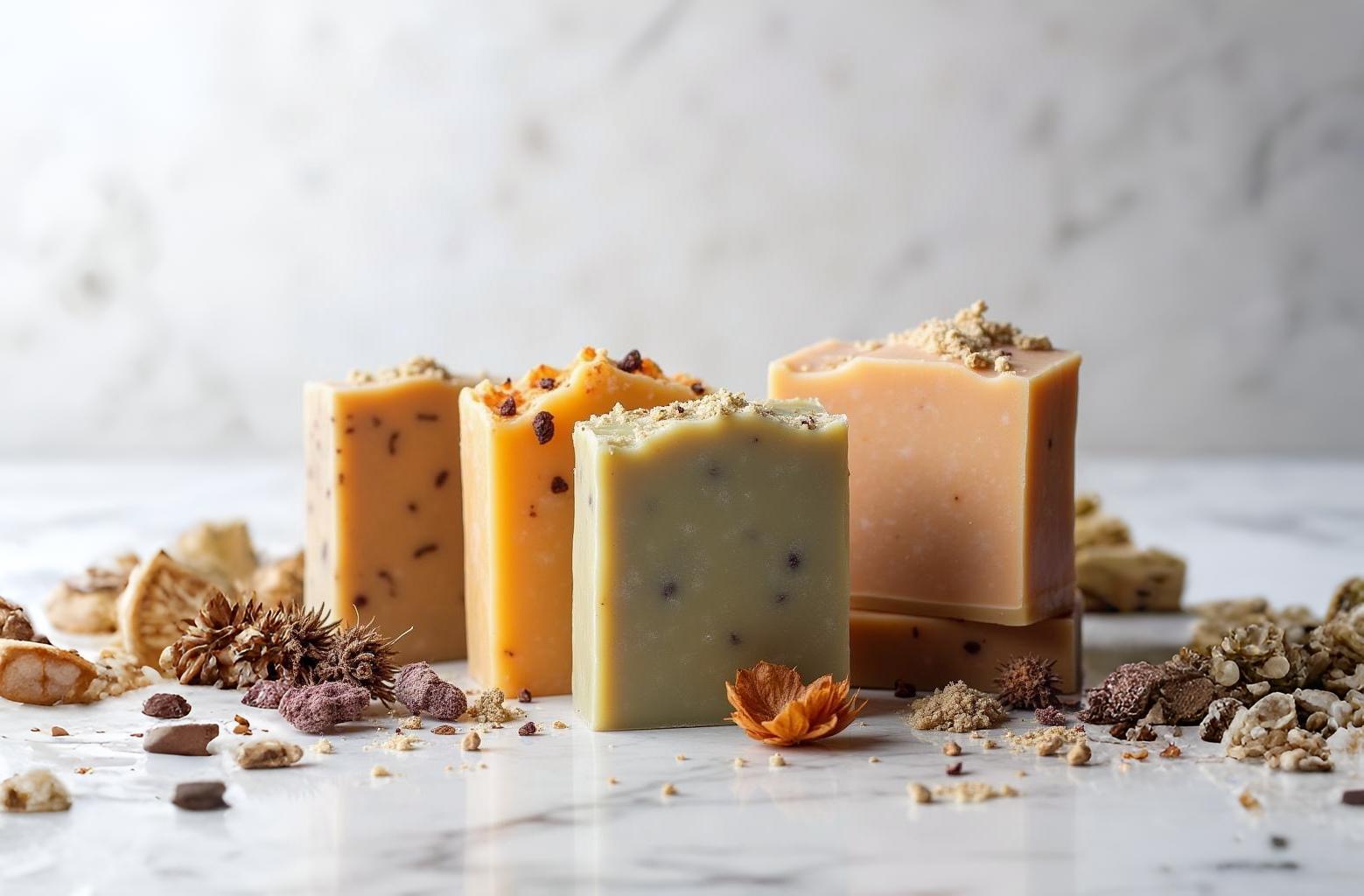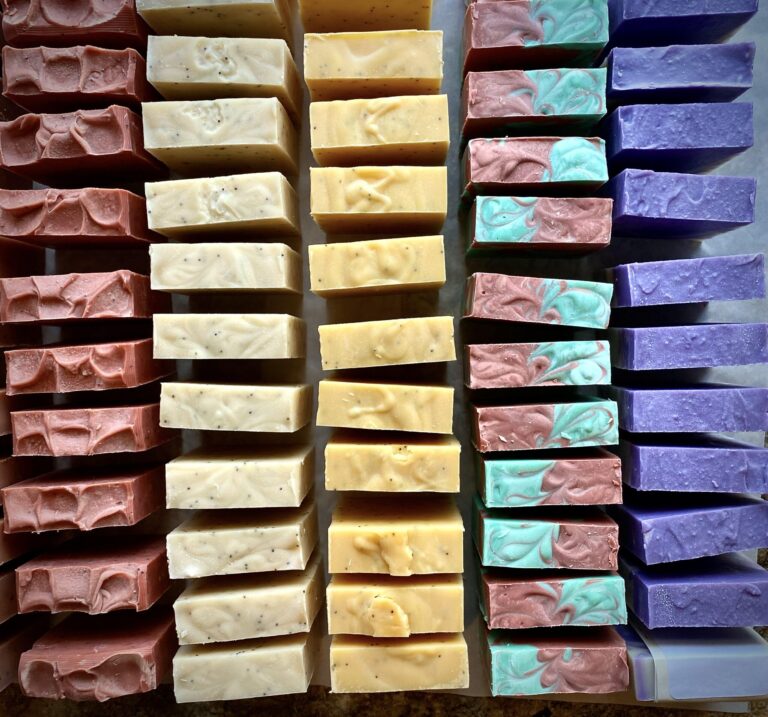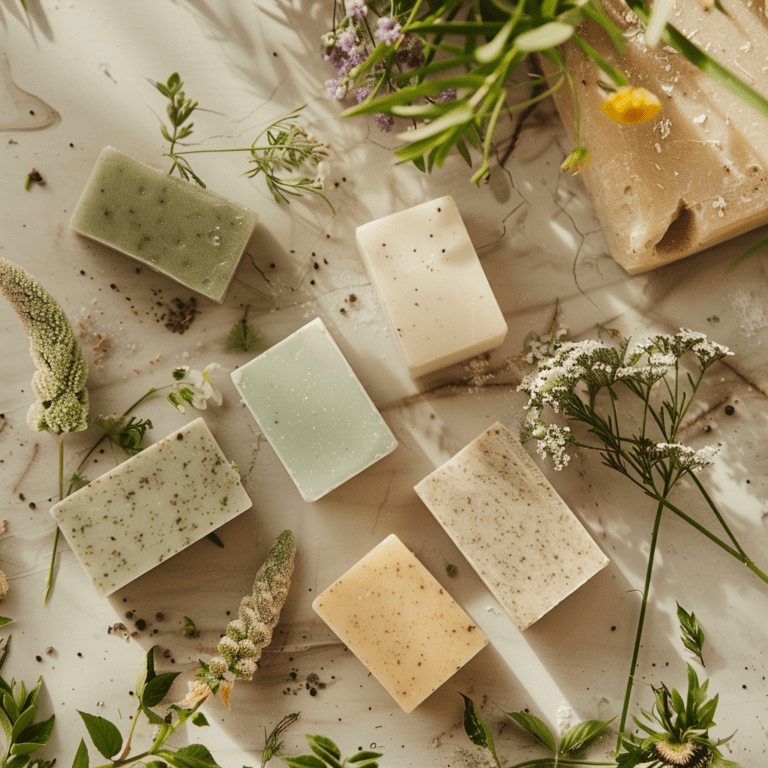In the world of handcrafted skincare, particularly cold process soap making, understanding the natural vs all-natural soap distinction is crucial. While the terms natural and all-natural are often used interchangeably, for soapmakers and conscious consumers alike, grasping the nuanced differences can significantly impact product choice, skin health outcomes, ingredient transparency, and even the final scent experience.. At RYM Products, we believe in transparency, which is why we’re breaking down the real meaning behind natural vs. all-natural in soap making, and why we choose high-quality fragrance oils from CandleScience for our soaps.
What Does “Natural” Mean in Soap Making?
In soap making, “natural” typically refers to products made with ingredients that are derived from natural sources—such as plant oils, butters, clays, and essential oils—without synthetic additives like artificial dyes or preservatives. However, the term is not regulated by the FDA, which means soapmakers have some leeway in how they use it.
For example, a cold process soap made with olive oil, coconut oil, and shea butter might be labeled “natural,” even if it contains a small percentage of a synthetic stabilizer or a lab-created fragrance component. This opens the door to confusion among customers looking for truly clean skincare options.
What About “All-Natural”?
“All-natural” is often marketed as a step above natural. It implies that every single ingredient is sourced from nature, with no synthetics or artificial substances whatsoever. That means no preservatives, no synthetic fragrance oils, and no colorants unless they’re clay-based or naturally derived (e.g., turmeric, spirulina, or activated charcoal).
While “all-natural” sounds ideal, it’s not always better. Many all-natural ingredients, like some essential oils, can be harsh on sensitive skin or may accelerate trace during soap making, affecting the quality and consistency of the final product.
That said, there are brands that truly elevate what it means to make effective and beautiful all-natural soaps. One such example is Ashley Marie Soap, a small-batch, woman-owned business that exclusively uses ingredients found in nature—no synthetics, ever. Her soaps feature plant-based oils like olive oil, coconut oil, and sustainable palm, paired with nourishing additives like goat’s milk, raw honey, oatmeal, and essential oils. She also uses botanicals and natural clays for color and skin benefits. The results are luxurious bars that are gentle, soothing, and ideal for those who prioritize minimalism and ingredient purity in their skincare.
Essential Oils vs. Fragrance Oils: What’s the Difference?
A core aspect of the natural vs. all-natural conversation in cold process soap making revolves around the use of essential oils vs. fragrance oils.
Essential oils are extracted directly from plants, flowers, or herbs through steam distillation or cold pressing. While they are “natural” in the purest sense, they come with limitations:
-
They can be volatile in soap, often fading quickly.
-
Some can cause skin irritation if not used properly.
-
Many accelerate trace or cause ricing in cold process soap.
Fragrance oils, on the other hand, are either fully synthetic or a blend of essential oils and synthetic compounds designed to replicate complex aromas. At RYM Products, we primarily use fragrance oils from CandleScience, a trusted supplier known for phthalate-free, clean-scent formulations that comply with global safety standards.
Why We Choose Fragrance Oils at RYM Products
At RYM Products, we prioritize consistency, safety, and a luxurious scent experience. That’s why we choose high-quality fragrance oils for cold process soap making. Here’s why they work for us—and for you:
-
Scent Longevity
Fragrance oils hold up beautifully in cold process soap, delivering a consistent aroma that lasts from the first use to the last sliver of the bar. -
Wider Range of Scents
From cozy Butterscotch and Bourbon to crisp Mountain Pine, fragrance oils allow us to create signature scents you can’t achieve with essential oils alone. -
Skin-Safe Formulations
CandleScience fragrance oils are rigorously tested for skin safety and do not contain harmful chemicals like phthalates or parabens. -
Better Control in Formulation
Fragrance oils are less likely to accelerate trace or cause unpredictable results during soap making, making our bars consistent in texture and quality.
Understanding Labeling and Transparency
When shopping for handmade soap or natural body care, it’s essential to look beyond the buzzwords. A soap labeled “natural” may still contain synthetic fragrance, and that’s okay—as long as it’s disclosed and responsibly formulated. At RYM Products, we’re proud to be clear about our ingredients: we use plant-based oils, nourishing butters, and premium fragrance oils to give you an unforgettable skin-loving experience.
Final Thoughts
The debate between natural and all-natural soap isn’t just about semantics—it’s about what works best for your skin and lifestyle. Essential oils may appeal to purists, but for those seeking a longer-lasting scent, safe fragrance oils in cold process soap offer an excellent alternative.
RYM Products’ cold process soaps are lovingly crafted using fragrance oils from CandleScience, ensuring that every bar offers both performance and aroma you can rely on. Whether you’re looking for something relaxing, invigorating, or boldly unique, our collection brings the best of nature and science together in one bar.
 Open Today
Open Today






